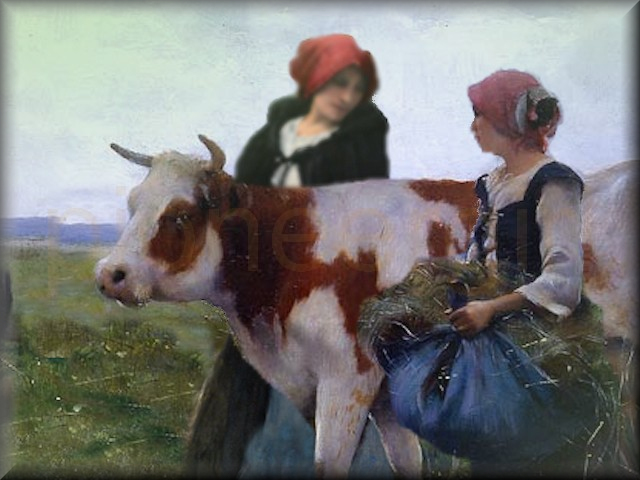gosh!

Word used as a euphemism for “God,” used to express surprise. According to Dialect Notes (1896), a mild or burlesque oath.
 When you are surprised, do you exclaim gee whizz, golly keiser, jimminy crickets, gee whittaker, or gosh all hemlock? Such are the questions which the American Dialect Society has been asking its members for the last five years, and which it now asks the general public. – The New York Sun, October 14, 1894.
When you are surprised, do you exclaim gee whizz, golly keiser, jimminy crickets, gee whittaker, or gosh all hemlock? Such are the questions which the American Dialect Society has been asking its members for the last five years, and which it now asks the general public. – The New York Sun, October 14, 1894.
 In By the Shores of Silver Lake, Laura Ingalls is supposedly shocked when her cousin Lena speaks a wicked word boldly.
In By the Shores of Silver Lake, Laura Ingalls is supposedly shocked when her cousin Lena speaks a wicked word boldly.
That wicked word is gosh. Of course, in Laura’s day, the word gosh or expressions such as gosh darn were using alterations of “God,” which polite people would never use incorrectly. Gosh wasn’t even included in Webster’s Unabridged Dictionary until after 1892. By the time the Little House books were written, however, it was widely acceptable and only considered as a word used to show mild surprise, even though it was still a word derived from the word God.
In On the Banks of Plum Creek, Pa returns from working the harvest back east and says: “Gosh! It’s good to be home.” Laura herself wrote in a letter to daughter Rose that her father never used strong language, but was known to say “gosh all hemlock” now and again. She had Pa use the expression in The Long Winter, as well as the expression “gosh dang.” Having Cousin Lena use the word shows the contrast between Laura’s upbringing and Lena’s.
The cartoon is from a 1904 “Willie Cute” strip by J.A. Lemon in the early 1900s.

gosh (BPC 29; SSL 13; TLW 10; PG)
by gosh (LTP 8)
gosh dang (TLW 22)
gosh all hemlock! (TLW 12)

